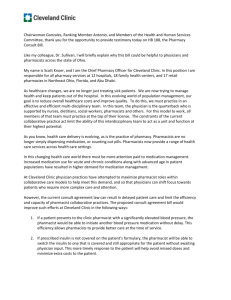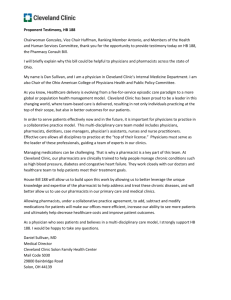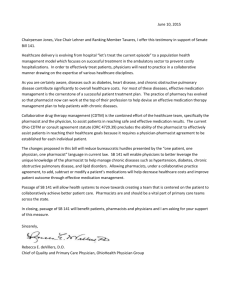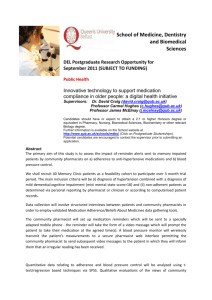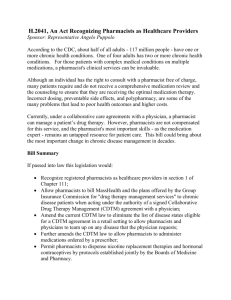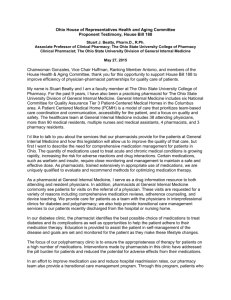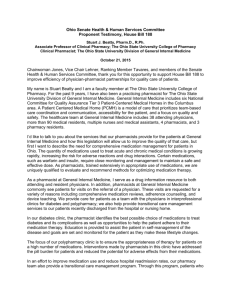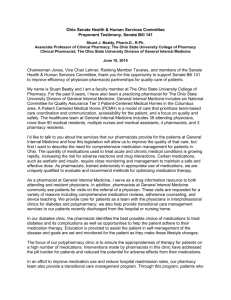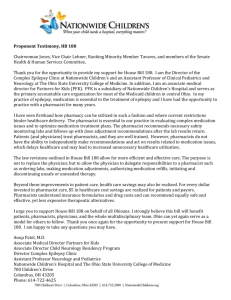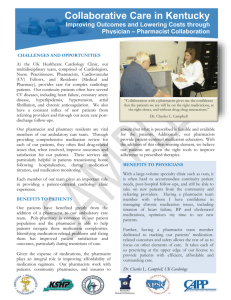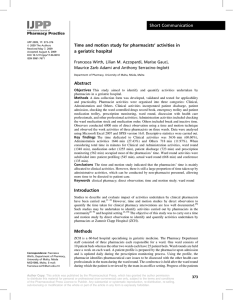Chairman Oelslager, Vice Chair Burke, Ranking Member
advertisement
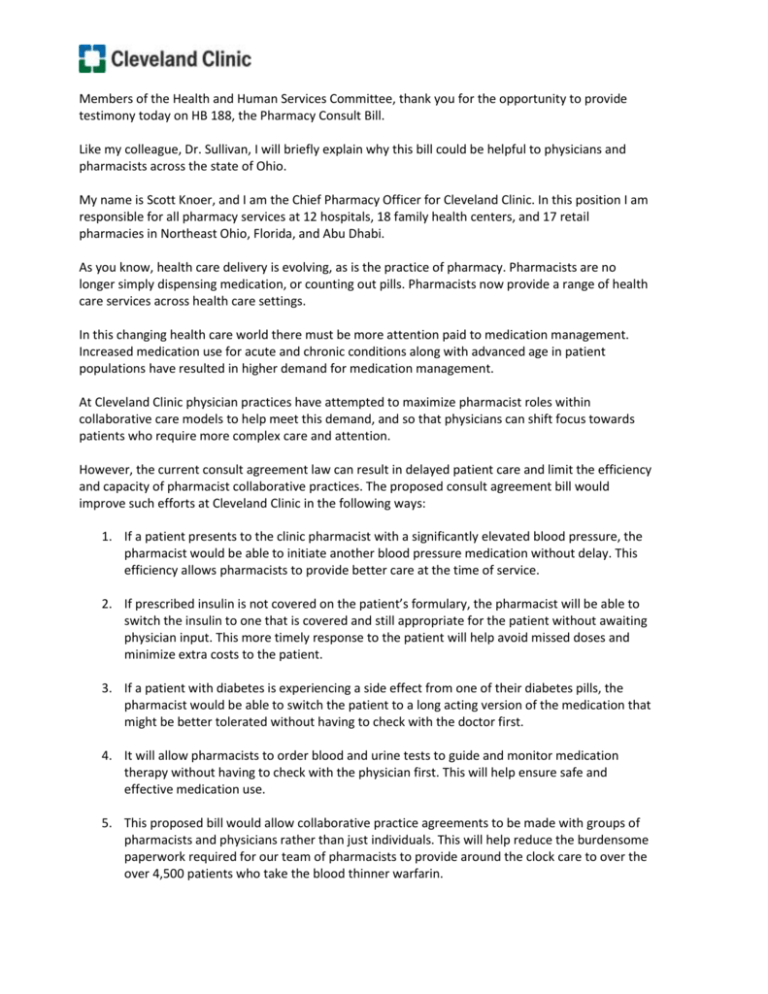
Members of the Health and Human Services Committee, thank you for the opportunity to provide testimony today on HB 188, the Pharmacy Consult Bill. Like my colleague, Dr. Sullivan, I will briefly explain why this bill could be helpful to physicians and pharmacists across the state of Ohio. My name is Scott Knoer, and I am the Chief Pharmacy Officer for Cleveland Clinic. In this position I am responsible for all pharmacy services at 12 hospitals, 18 family health centers, and 17 retail pharmacies in Northeast Ohio, Florida, and Abu Dhabi. As you know, health care delivery is evolving, as is the practice of pharmacy. Pharmacists are no longer simply dispensing medication, or counting out pills. Pharmacists now provide a range of health care services across health care settings. In this changing health care world there must be more attention paid to medication management. Increased medication use for acute and chronic conditions along with advanced age in patient populations have resulted in higher demand for medication management. At Cleveland Clinic physician practices have attempted to maximize pharmacist roles within collaborative care models to help meet this demand, and so that physicians can shift focus towards patients who require more complex care and attention. However, the current consult agreement law can result in delayed patient care and limit the efficiency and capacity of pharmacist collaborative practices. The proposed consult agreement bill would improve such efforts at Cleveland Clinic in the following ways: 1. If a patient presents to the clinic pharmacist with a significantly elevated blood pressure, the pharmacist would be able to initiate another blood pressure medication without delay. This efficiency allows pharmacists to provide better care at the time of service. 2. If prescribed insulin is not covered on the patient’s formulary, the pharmacist will be able to switch the insulin to one that is covered and still appropriate for the patient without awaiting physician input. This more timely response to the patient will help avoid missed doses and minimize extra costs to the patient. 3. If a patient with diabetes is experiencing a side effect from one of their diabetes pills, the pharmacist would be able to switch the patient to a long acting version of the medication that might be better tolerated without having to check with the doctor first. 4. It will allow pharmacists to order blood and urine tests to guide and monitor medication therapy without having to check with the physician first. This will help ensure safe and effective medication use. 5. This proposed bill would allow collaborative practice agreements to be made with groups of pharmacists and physicians rather than just individuals. This will help reduce the burdensome paperwork required for our team of pharmacists to provide around the clock care to over the over 4,500 patients who take the blood thinner warfarin. In order to serve patients effectively now and in the future, it is important for physicians and pharmacists to be able to practice in a collaborative practice model that is best able to meet increasing treatment needs. House Bill 188 will allow us the ability to build upon the important team-based work we are doing at Cleveland Clinic, and we are proud to support this bill. Thank you again for the opportunity to testify. I would be happy to answer any questions.
